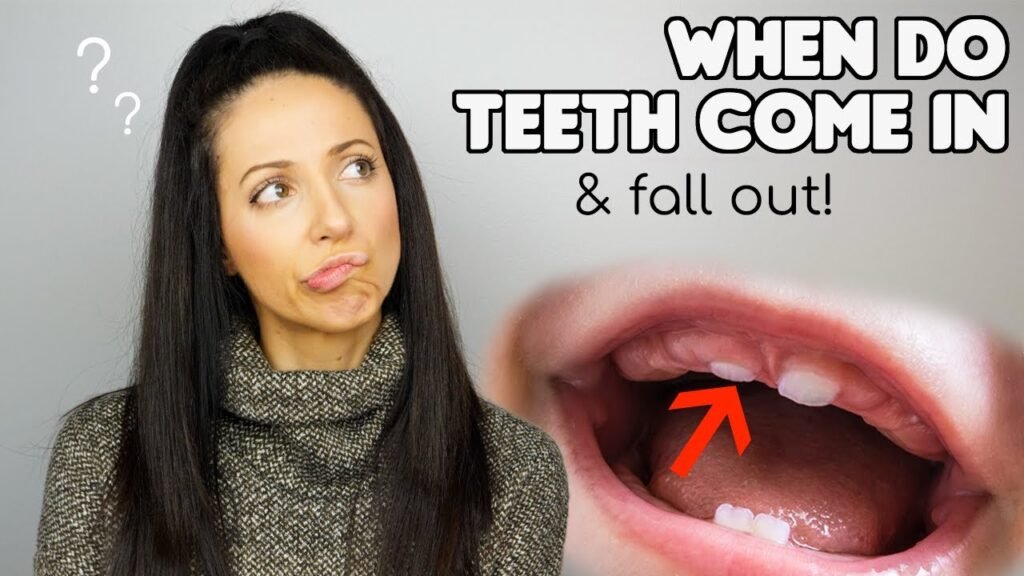When Do Adult Teeth Typically Emerge?

Do you ever wonder when you'll get your adult teeth? The age at which your adult teeth come in can vary, but typically, most people start getting their adult teeth between the ages of 6 and 13. These permanent teeth replace the baby teeth that have been with you since infancy, and they play a crucial role in your oral health for the rest of your life. Let's explore the fascinating process of getting your adult teeth and what you can expect during this important milestone in your dental development.
At what age do permanent teeth come in?
Around the age of 6 to 7 years old, children begin to see their permanent teeth emerge as the baby teeth start to fall out. The process typically starts with the mandibular central incisors, or the bottom front teeth, being replaced. As children continue to grow, more baby teeth will be shed and permanent teeth will take their place, completing the transition by around 11 to 13 years old. This natural process of dental development marks an important milestone in a child's growth and development.
Do you get any teeth at 16?
At around 16 years old, it is common for the third set of molars, known as wisdom teeth, to start developing beneath the gums. These teeth typically make their appearance between the ages of 16 and 18. While some individuals may not experience any issues with the eruption of their wisdom teeth, others may require them to be extracted due to overcrowding or impaction.
It is important to monitor the development of wisdom teeth during the teenage years, as they can potentially cause problems if they do not have enough space to fully erupt. Regular dental check-ups can help determine if there are any issues with the positioning or growth of these molars. In some cases, the wisdom teeth may need to be removed to prevent complications such as pain, infection, or damage to surrounding teeth.
If you are approaching the age of 16 and have not yet noticed the emergence of your wisdom teeth, do not be alarmed. The process of tooth development can vary from person to person, and some individuals may not see their wisdom teeth until later in their late teens or even early twenties. However, it is still important to consult with a dentist to ensure that your oral health is being properly monitored and any necessary interventions are made.
Do teeth change after 18?
Even though braces are commonly associated with teens and kids, it's important to recognize that teeth can still shift after the age of 18. While the changes may not be as dramatic as during adolescence, they can still occur throughout our lives. It's essential to continue practicing good oral hygiene and visit the dentist regularly to maintain a healthy and straight smile, regardless of age.
Unveiling the Timeline of Adult Tooth Development
Embark on a fascinating journey through the timeline of adult tooth development. From the emergence of primary teeth to the eruption of permanent molars, each stage unveils a unique and intricate process that shapes our smiles. Understanding this timeline is crucial for maintaining optimal oral health and preventing dental issues.
As children transition into adolescence, their mouths undergo significant changes as adult teeth begin to replace their baby teeth. This period marks a crucial juncture in tooth development, with the eruption of molars and incisors playing a key role in shaping the overall structure of the jaw. Proper care during this stage is essential for ensuring healthy teeth and gums well into adulthood.
Delve deeper into the world of adult tooth development as we explore the intricate details of enamel formation, root growth, and tooth alignment. By uncovering the mysteries of tooth development, we gain valuable insights into the importance of good dental hygiene practices and regular check-ups. Join us on this enlightening journey as we unravel the secrets of a healthy and beautiful smile.
Discovering the Journey of Adult Teeth Eruption
Embark on a fascinating exploration of the journey of adult teeth eruption, as each tooth emerges into place with precision and purpose. From the first molars to the wisdom teeth, witness the intricate process of growth and development that shapes our smiles and facilitates proper function. Delve into the wonder of nature's design as adult teeth take their rightful place in the oral cavity, signaling a transition from childhood to maturity. Join us on this enlightening voyage of discovery, where each tooth tells a unique story of strength, resilience, and beauty.
In summary, the transition from baby teeth to adult teeth typically occurs between the ages of 6 and 12 years old. It is important to maintain good oral hygiene practices during this time to ensure the health and longevity of your adult teeth. Remember to visit your dentist regularly for check-ups and cleanings to keep your smile bright and healthy for years to come.